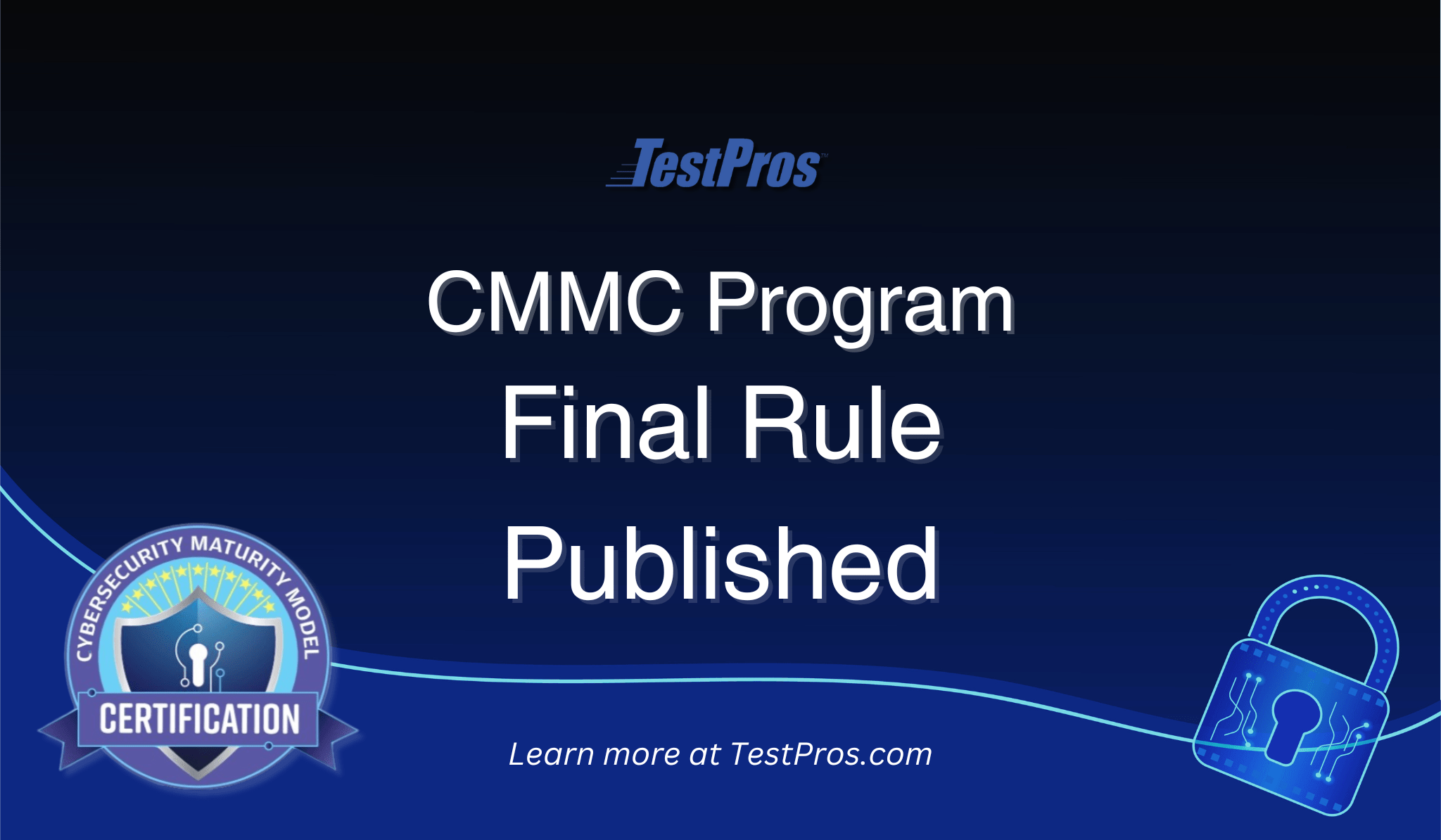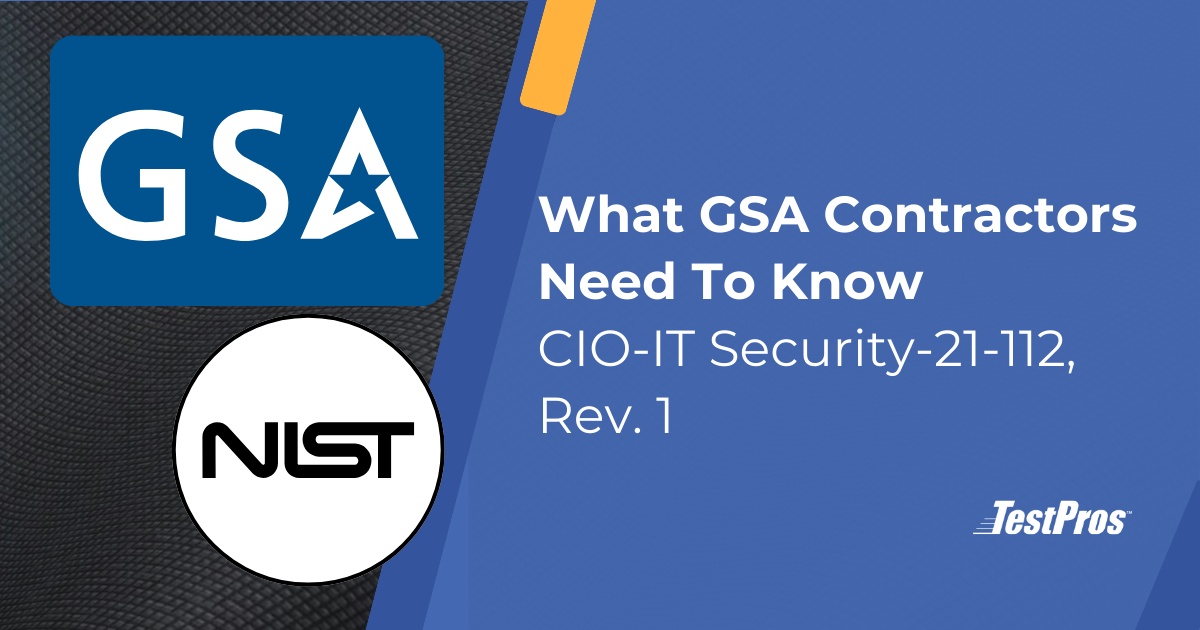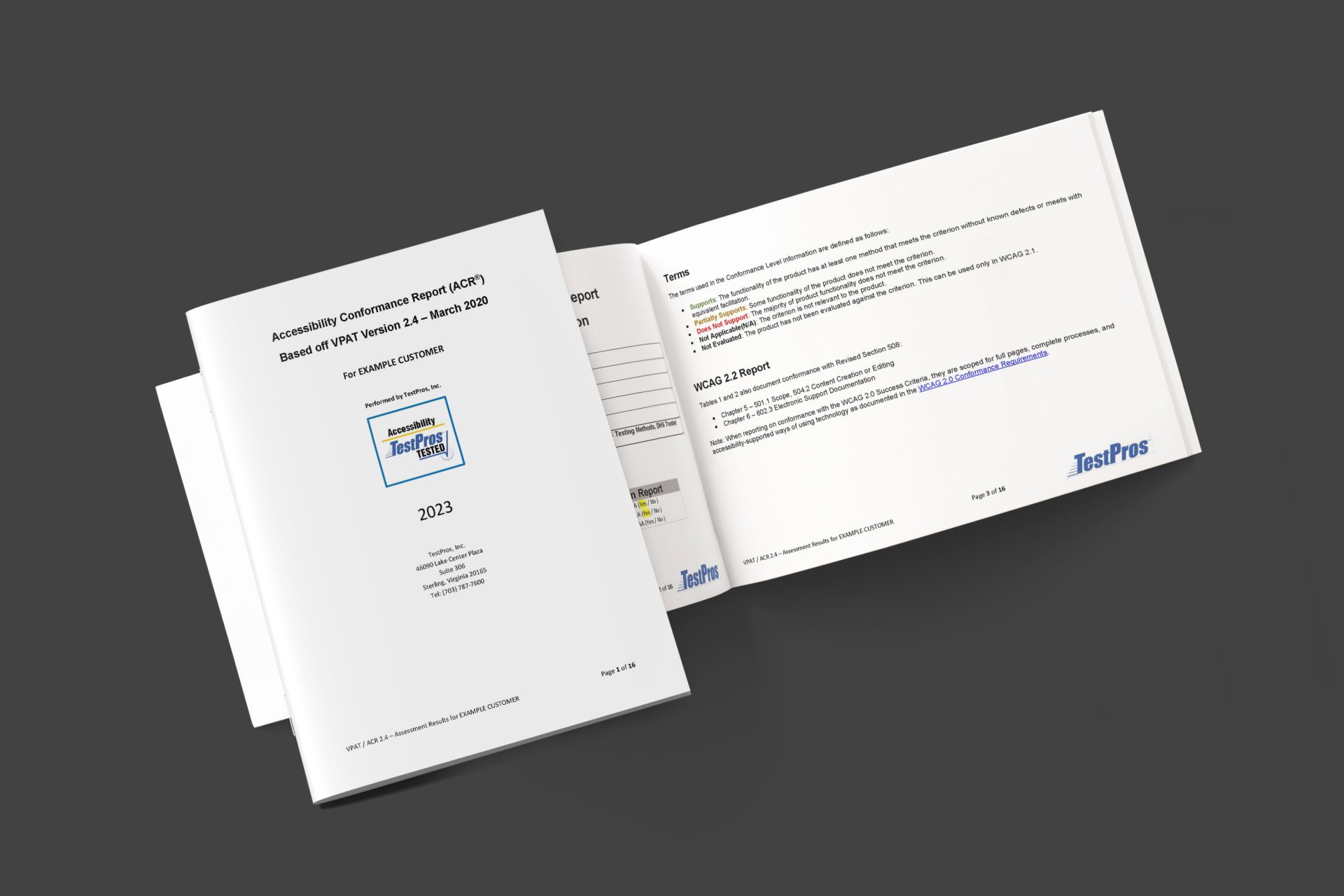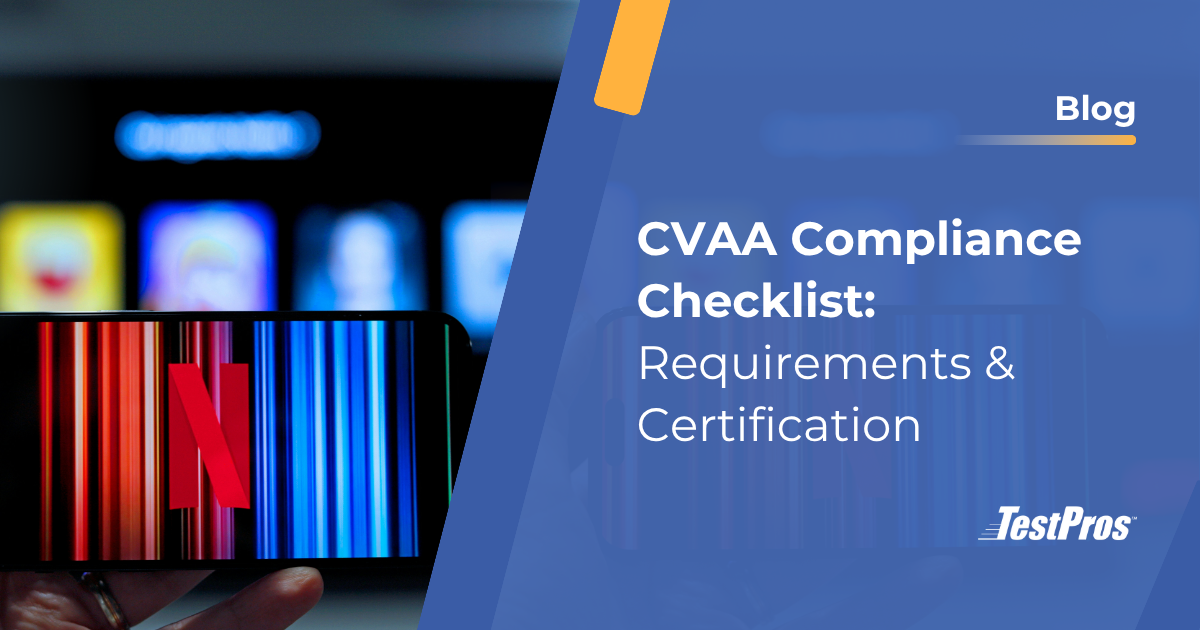Table of Contents
Introduction
The Department of Defense (DoD) has officially launched the Cybersecurity Maturity Model Certification (CMMC) Program to address long-standing concerns over cybersecurity compliance within the defense supply chain. Contractors that manage Controlled Unclassified Information (CUI) must now demonstrate compliance through third-party verification, while those handling Federal Contract Information (FCI) are required to self-assess against defined cybersecurity controls.
This final rule, published in the Federal Register on October 15, 2024, solidifies CMMC standards as a requirement under Part 32 of the Code of Federal Regulations (CFR), with further procurement-specific requirements to follow in Part 48 CFR, anticipated in early 2025.
Key Insights from CMMC Final Rule
At TestPros, we’ve broken down the final rule’s critical points to help contractors navigate what these new standards mean for their compliance efforts. Here are the essential takeaways.
- Final Rule Effective on December 16, 2024: This date officially activates the CMMC 2.0 marketplace and requirements, with all impacted contractors required to comply. Companies should assess their readiness now and begin any necessary remediation steps.
- C3PAO Assessments Begin in December 2024: CMMC Third-Party Assessment Organizations (C3PAOs) are authorized to conduct assessments for Organizations Seeking Assessment (OSAs) starting in December, once the final rule becomes effective. This advance enables contractors to achieve certified compliance ahead of contract deadlines, ensuring they are prepared when compliance becomes mandatory.
- Phase Two Rollout Scheduled for Q2 2026: Phase 2, which requires Level 2 assessments conducted by C3PAOs, is now scheduled to begin 12 months after Phase 1 rather than the initially planned six months. Phase 1 focuses on self-assessment requirements for Level 1 and Level 2 contractors. However, the DoD retains the option to accelerate audit timelines for contractors handling especially sensitive CUI, reinforcing the need for proactive cybersecurity preparation.
- Prime Contractors and Subcontractors Subject to CMMC Compliance: The rule clarifies that both prime contractors and their subcontractors handling CUI must achieve CMMC certification, broadening the scope to secure the entire defense supply chain.
- Continued Use of NIST SP 800-171 Revision 2: Contractors will adhere to NIST SP 800-171 Revision 2 for now, providing stability in control requirements. While future updates may influence CMMC standards, companies should continue to operate under Revision 2 for a consistent compliance approach.
- Detailed Requirements for Level 2 Certification: Level 2 certification requirements align closely with NIST SP 800-171 Rev. 2 standards, especially critical for companies handling CUI.
- Use of Assessment Scoring for Levels 1 and 2 Self-Assessments: Contractors conducting Level 1 and Level 2 self-assessments will need to score themselves according to specific criteria. OSC’s conducting self-assessments are required to achieve a minimum score of 88 to meet compliance.
- Use of Plans of Action & Milestones (POA&Ms) Under Strict Conditions: Contractors are permitted to use POA&Ms to address certain compliance gaps, with at least 80% of controls needing to be met at the outset. The rule gives a 180-day window for resolving remaining issues, creating a pathway to compliance but requiring timely action on identified gaps.
- Emphasis on Self-Assessment Documentation: Contractors conducting self-assessments must maintain detailed records, as the DoD may review findings for verification. This requires strong documentation practices to demonstrate compliance throughout the contract term.
- DoD’s Expectation for Small Business Compliance: The DoD acknowledges cost concerns for smaller contractors but maintains that CMMC compliance is mandatory. Their estimates of compliance costs do not account for additional engineering expenses, which may require small businesses to plan ahead for these requirements.
- Cybersecurity Insurance Encouraged: While not mandatory, cybersecurity insurance is recommended for contractors as an additional safeguard.
- No DoD Appeals for Disputed Assessments by C3PAOs: The rule does not provide a DoD appeal process if a C3PAO disputes a contractor’s assessment results. This creates a stringent environment where meeting each control requirement is essential for certification.
- Cybersecurity Waivers Allowed Under Limited Circumstances: The rule allows for cybersecurity waivers only under exceptional cases, requiring detailed justification. Contractors are advised to avoid reliance on waivers as a long-term solution.
Conclusion
In the coming months, defense contractors must act quickly to meet the DoD’s CMMC requirements. With the final rule now in place, companies handling CUI and FCI must ensure they are fully compliant—or risk losing valuable DoD contracts. Time is of the essence; waiting until the CMMC program becomes mandatory could jeopardize both contract eligibility and future opportunities within the defense sector.
TestPros is here to help you meet these standards with ease and confidence. As an independent consultant, we offer expert guidance on assessments and compliance planning without requiring a monthly subscription or tying you into a managed service provider (MSP) agreement. Our tailored approach provides everything you need to achieve and maintain compliance—on your terms. Now is the time to secure your CMMC status, strengthen your cybersecurity posture, and ensure your place in the defense supply chain.
To learn more about how TestPros can help, contact our sales team.





